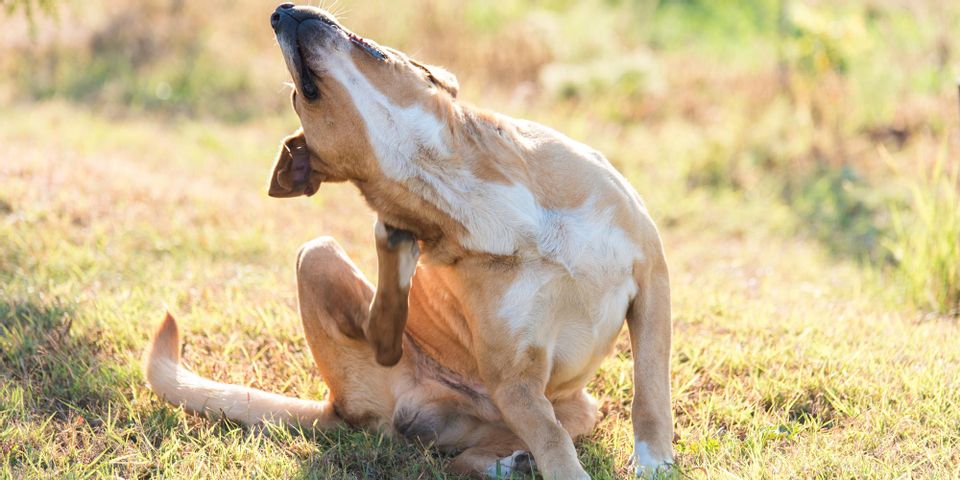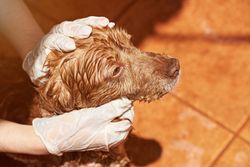
While it may be hidden by fur, your dog’s skin provides them with invaluable protection—such as by keeping pathogens out of the body. And just like humans, skin irritations are uncomfortable. Brushing and bathing are both simple ways that dog owners can protect this part of the body. However, it’s still possible for pet skin problems to surface. To help defend your best friend’s health, here are five common skin issues to watch for and how to address them.
5 Pet Skin Problems Dog Owners Should Know About
1. Flea Infestations
When fleas feed on a dog’s blood, their saliva can trigger an allergic reaction. As a result of excessive scratching, flea-infested animals face a higher risk of creating a wound while scratching, and if left untreated, these wounds may become infected. If you suspect fleas are to blame for pet skin problems, ask your veterinarian about safe and effective treatments that can kill the pests—such as medicated shampoos, topical ointments, or orally administered prescriptions.
2. Infection
 Fungal infections—such as ringworm—are highly contagious and can trigger intense itching. Bacterial infections, on the other hand, occur when bacteria invade open wounds, resulting in possible redness, swelling, or discharge. Depending on the cause of the pet skin problem, your veterinarian may prescribe an antifungal or antibacterial medication to clear the infection.
Fungal infections—such as ringworm—are highly contagious and can trigger intense itching. Bacterial infections, on the other hand, occur when bacteria invade open wounds, resulting in possible redness, swelling, or discharge. Depending on the cause of the pet skin problem, your veterinarian may prescribe an antifungal or antibacterial medication to clear the infection.
3. Mange
Mange is a canine skin disorder caused by specific types of mites that infest hair follicles. When these mites take over, dogs may develop hair loss and open sores. Medicated rinses and dips are often recommended to kill mite parasites and clear the problem up.
4. Thyroid Disorder
Inflammation of the thyroid gland can cause dogs to develop hypothyroidism—a condition that results in low production of the thyroid hormone. When this happens, canines may develop dark spots on the skin, scaling, and thinning hair. Dogs with this condition can be given a daily thyroid replacement medication prescribed by a veterinarian.
5. Improper Nutrition
If a dog isn’t consuming enough protein, their coat may take on a dull appearance, and their skin may become excessively dry. In other cases, these animals may consume foods they are allergic to, resulting in sudden skin irritation. Whatever the cause, it’s important to ask a veterinarian if dietary changes can help prevent the problem.
Whether you’re worried about hair loss, chronic itchiness, or discoloration, Lillian Veterinary Hospital has the comprehensive resources necessary to address many pet skin problems. Based in Lillian, AL, this veterinarian is equipped to accurately diagnose and treat a wide range of dermatological conditions—including infections and mange. This provider also offers nutritional counseling and flea prevention services to help keep your pup’s coat as healthy as possible. To learn more about these and other services they offer, visit this veterinary care facility online. For appointments, call (251) 962-2304.
About the Business
Have a question? Ask the experts!
Send your question

